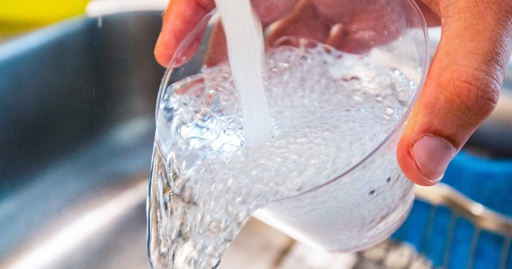A bill to ban the use of the mineral in public water passed the Florida House 88-27. It now awaits Gov. Ron DeSantis’ signature.
Lawmakers in Florida gave final passage to a bill to ban fluoride in public water systems Tuesday, with the state House voting 88-27.
SB 700, also known as the Florida Farm Bill, doesn’t mention the word “fluoride,” but it would effectively ban the chemical compound by preventing “the use of certain additives in a water system.” The bill awaits Gov. Ron DeSantis’ signature.
If DeSantis, a Republican, signs the bill, Florida will become the second state to ban fluoride from water supplies.



The UK largely doesn’t fluoridate, so this is one of the (few) areas where the US actually does better than the UK. https://en.m.wikipedia.org/wiki/Water_fluoridation_by_country
The UK does generally have better tooth health in the grand scheme of things, but it’s actually pretty close, and the US is still really high on the list.
https://www.yongeeglintondental.com/blog/healthy-primary-teeth/
Without checking, I suspect the US’s slightly higher cavity rate is more down to sugar consumption than received dental care.
and also dental care isnt usually covered by most insurance so people try to ignore the problem til its too late.
“yes we offer health insurance but fuck your teeth and eyes you poor fuck”
Vision insurance is also completely useless.
“Whoops, your prescription is too strong. We only cover glasses for the mildly blind.”
I stopped signing up for vision insurance when it was cheaper to do some “two for one frames” deal without insurance.
Did you read the rest of the Wikipedia article? How is better to add fluoride in the amounts the US does? It says in the Wikipedia article:
Also, new research highlights that high levels of fluoride is problematic for pregnant women (it affect cognitive abilities of the unborn child).
I found this good review article based on a study commissioned by the Canadian government.
https://www.tandfonline.com/doi/full/10.1080/10408444.2023.2295338
It seems like potential IQ effects are still difficult to distinguish as a dose response, so they weren’t able to come up with a point of departure. It doesn’t help that in a lot of studies comparing “high” and “low” fluoridation effects on IQ, the “low” is still higher than the WHO recommended level of 1.5 mg/L, and the US recommended level of 0.75.
I think the optimal level is likely going to vary by municipality based on the quality of dental care and the use of fluoridated toothpaste (that everyone overuses), and consumption of high fluoride beverages like tea. I guess my main takeaway is that people need to read their local water quality report, and do what they will with that information